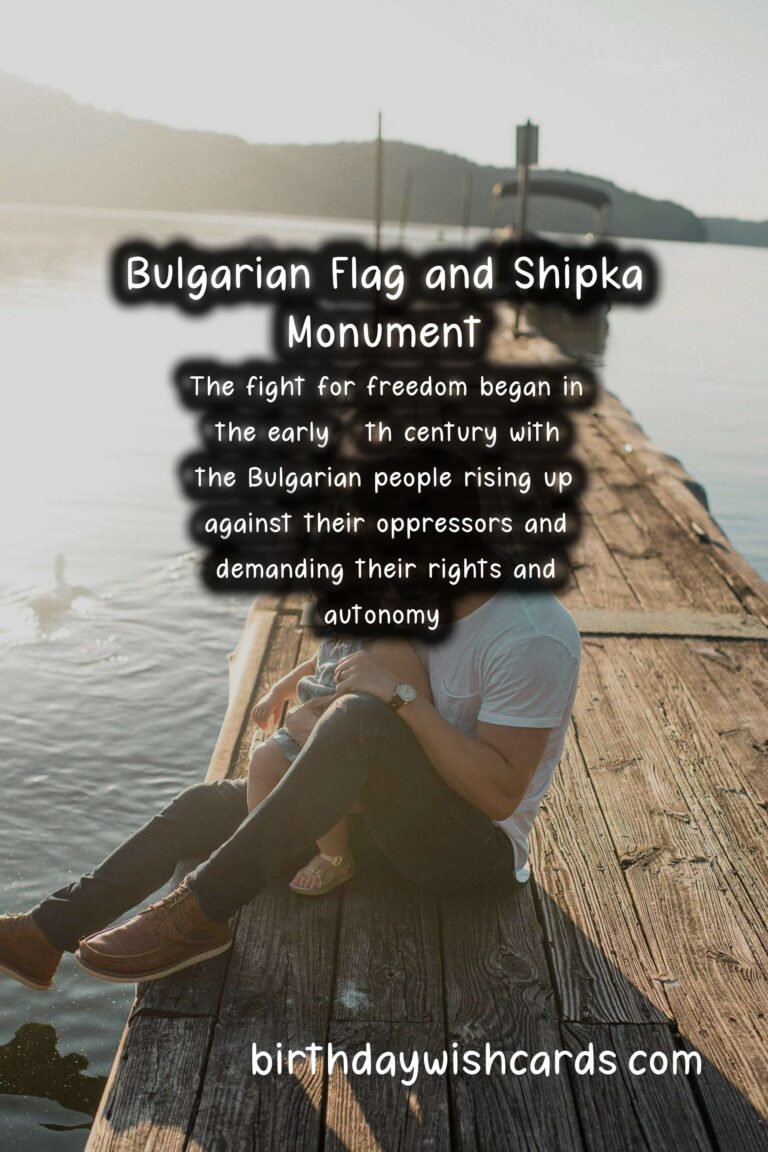Mongolian Independence Day – A celebration of freedom and culture
December 29 marks the celebration of Mongolian Independence Day,
a national holiday that commemorates the country’s independence from the Qing Dynasty of China in 1911. This day holds great significance for the people of Mongolia as it symbolizes their freedom and sovereignty. The celebrations are not only centered around historical events but also reflect the rich and diverse culture of Mongolia. Let us dive deeper into the history and traditions of this remarkable holiday.
The History of Mongolian Independence Day
The Mongolian people have a long and tumultuous history, from the rule of Genghis Khan and the establishment of the Mongol Empire to being under foreign rule. In the late 19th century, Mongolia came under the rule of the Qing Dynasty of China. However, with the collapse of the Qing Dynasty in 1911, Mongolia seized the opportunity to declare its independence on December 29, 1911.
The Declaration of Independence was a significant moment for the Mongolian people, as it marked the end of foreign rule and the beginning of a new era of sovereignty. The country was declared a constitutional monarchy with the 8th Jebtsundamba Khutughtu, a descendent of Genghis Khan and the head of the Buddhist Church, as the first ruler.
Traditions and Celebrations
Mongolian Independence Day is a time for celebration and reflection, and it is observed throughout the country with various events and activities. The day begins with a traditional ceremony at the Government Palace, where the President addresses the nation and hoists the national flag. The ceremony is followed by a military parade and a march past by soldiers, police, and other organizations.
The streets of Ulaanbaatar, the capital of Mongolia, are decorated with colorful ribbons and banners, and people dress up in traditional costumes to participate in cultural events and performances. One of the main traditions of the day is the Naadam festival, also known as the three games of men, which includes horse racing, wrestling, and archery. These games have been an integral part of Mongolian culture for centuries and are a source of national pride and identity.
Another important tradition is the offering of khadags, traditional silk scarves, at the main square of the capital where a statue of Genghis Khan stands. This is a show of respect and reverence for the founder of the Mongol Empire and a symbol of unity and prosperity for the nation.
Mongolian National Cuisine
No celebration in Mongolia is complete without indulging in their traditional cuisine. During Mongolian Independence Day, various street food stalls can be seen serving traditional dishes like buuz, a steamed dumpling filled with meat, and khorkhog, a dish made of goat meat, vegetables, and hot stones. The highlight of the festivities is the serving of the national dish, tsuivan, which is a stir-fry of noodles, meat, and vegetables, cooked in a giant wok over hot coals.
Bahrain National Day – A celebration of unity and progress
Marks the celebration of Bahrain’s National Day on December 16,
the country’s people come together to commemorate their independence from Great Britain in 1971. This national holiday represents the unity and progress of the nation and its people. Let us take a closer look at the history and traditions of Bahrain National Day.
The History of Bahrain National Day
Bahrain’s history can be traced back thousands of years, with evidence of human settlement dating back to the Bronze Age. It also has a long history of foreign rule, with the arrival of the Persians, Portuguese, and British. Bahrain was a British protectorate until it gained its independence on December 16, 1971.
The declaration of independence was a significant moment for the people of Bahrain, as it marked the end of foreign rule and the beginning of a new era of self-governance. The event was celebrated with great joy and patriotism, and the country declared a constitutional monarchy with Sheikh Isa bin Salman Al Khalifa as the first leader.
Traditions and Celebrations
Bahrain National Day is a time for joy and festivities, marked by various cultural events, parades, and performances. The streets and buildings are adorned with the country’s national flag, and people dress up in traditional clothing, adding to the celebratory atmosphere. The main event of the day is a military parade that showcases the country’s armed forces and their capabilities.
In addition to the parade, there are also cultural events and performances held throughout the country, showcasing traditional music, dance, and food. One of the most significant traditions of the day is the lighting of candles. The National Day logo, ‘Spread the Light’, is illuminated with candles all over the country, symbolizing the unity and harmony of the Bahraini people.
Bahrain National Cuisine
Bahraini cuisine is a reflection of the country’s history and culture, and no celebration is complete without indulging in their traditional dishes. During Bahrain National Day, one can find stalls selling delicious delicacies like machboos, a spiced rice dish with meat or fish, and kubooz, a flatbread that is an essential part of every meal. Another must-try dish is muhammar, a sweet rice dish, and a popular dessert, balaleet, a sweet vermicelli dish with saffron, cardamom, and rose water.
Mongolian Independence Day is a national holiday that commemorates the country’s independence from China in 1911.
The celebrations are not only centered around historical events but also reflect the rich and diverse culture of Mongolia.
The Declaration of Independence was a significant moment for the Mongolian people, as it marked the end of foreign rule and the beginning of sovereignty.
The country was declared a constitutional monarchy with the 8th Jebtsundamba Khutughtu as the first ruler.
Mongolian Independence Day is a time for celebration and reflection, and it is observed throughout the country with various events and activities.
The day begins with a traditional ceremony at the Government Palace, followed by a parade and cultural performances.
One of the main traditions of the day is the Naadam festival, which includes horse racing, wrestling, and archery, and has been a part of Mongolian culture for centuries.
Another important tradition is the offering of khadags, traditional silk scarves, at the main square of the capital.
No celebration in Mongolia is complete without indulging in their traditional cuisine, with dishes like buuz, khorkhog, and tsuivan being served.
Bahrain National Day is a national holiday that commemorates the country’s independence from Great Britain in 1971.
Bahrain’s history can be traced back thousands of years and has a long history of foreign rule.
The country gained its independence on December 16, 1971, and declared a constitutional monarchy with Sheikh Isa bin Salman Al Khalifa as the first leader.
Bahrain National Day is a time for joy and festivities, marked by various cultural events and performances.
The main event of the day is a military parade that showcases the country’s armed forces.
One of the most significant traditions of the day is the lighting of candles, symbolizing the unity and harmony of the Bahraini people.
Bahraini cuisine is a reflection of the country’s history and culture, and no celebration is complete without indulging in their traditional dishes.
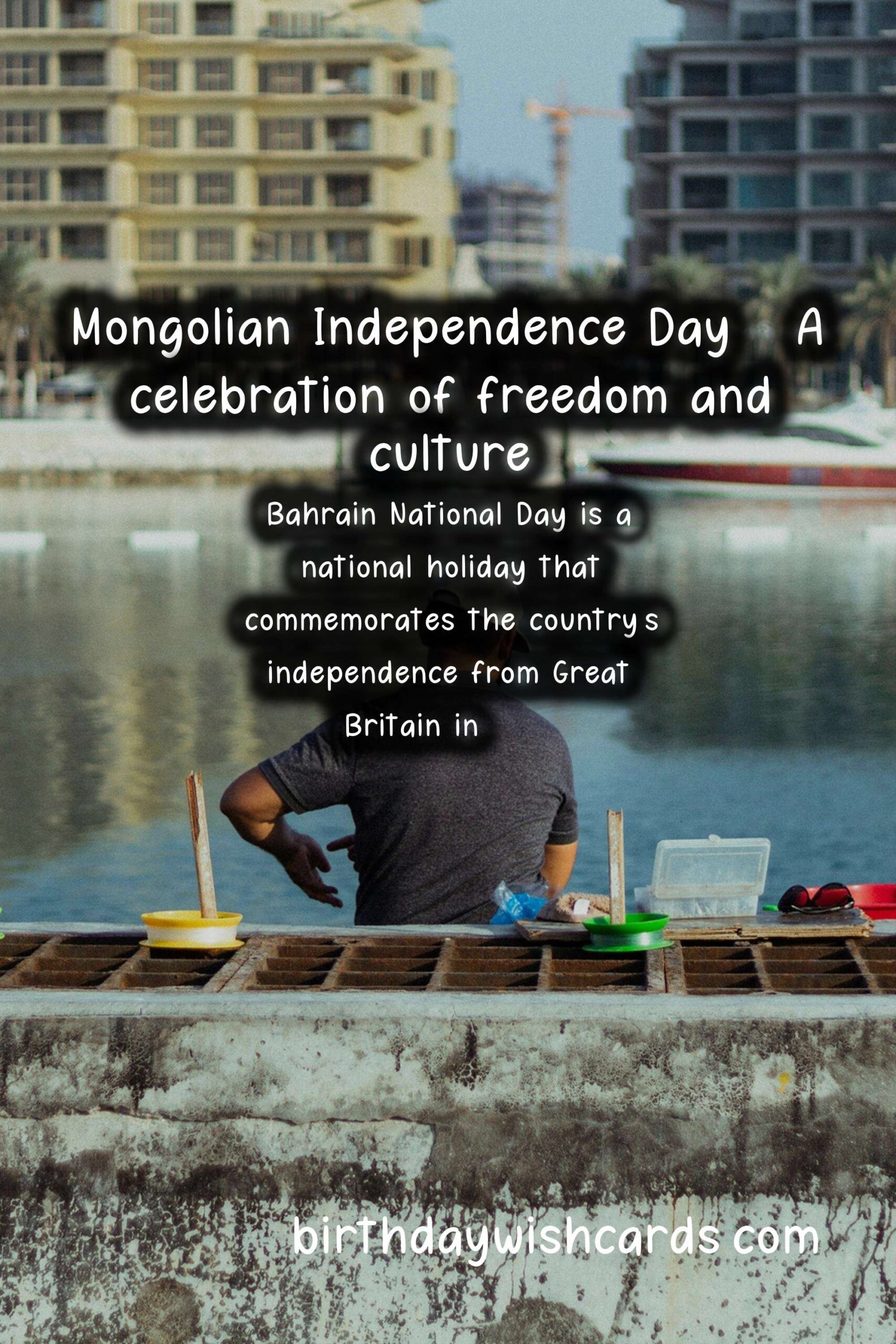
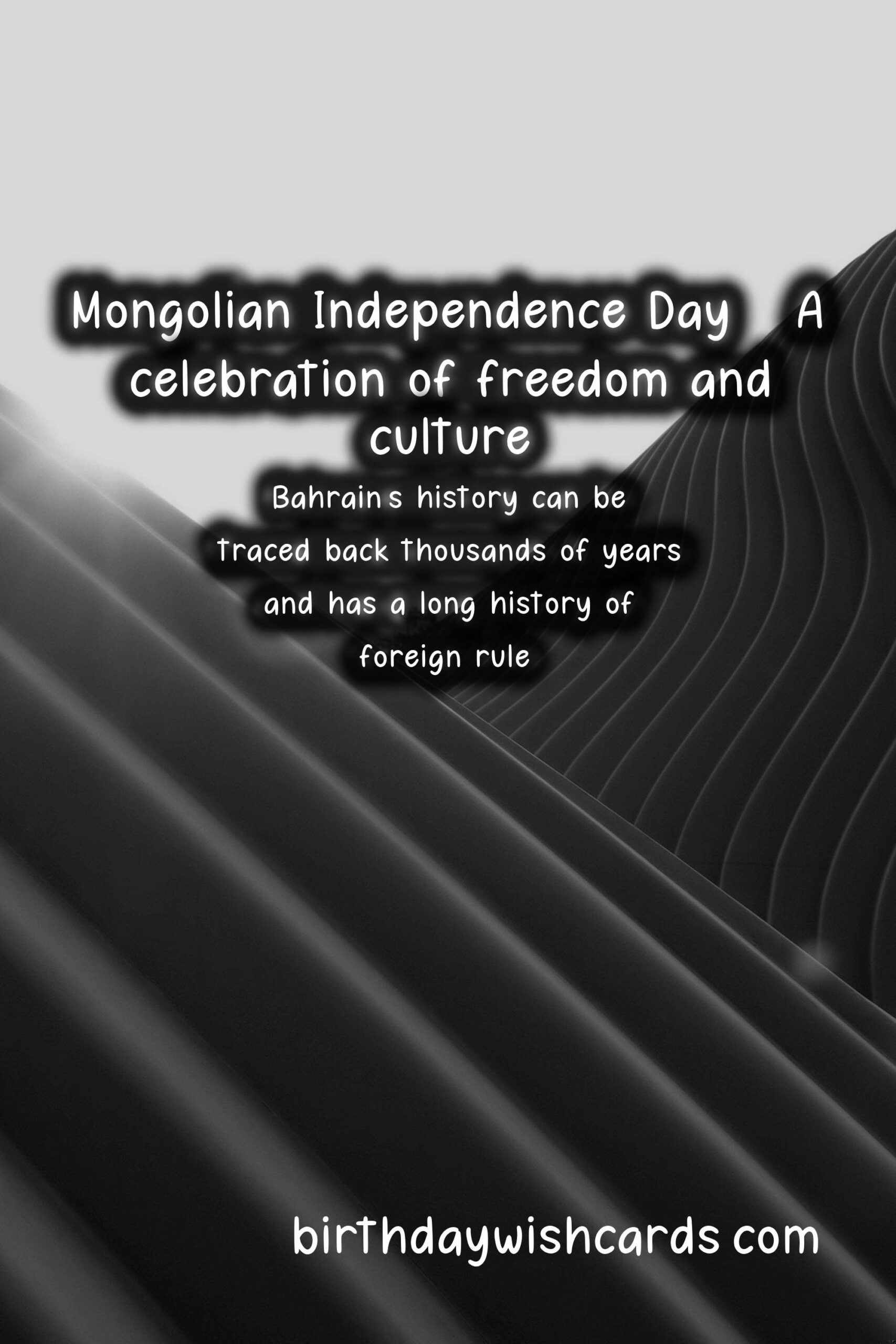
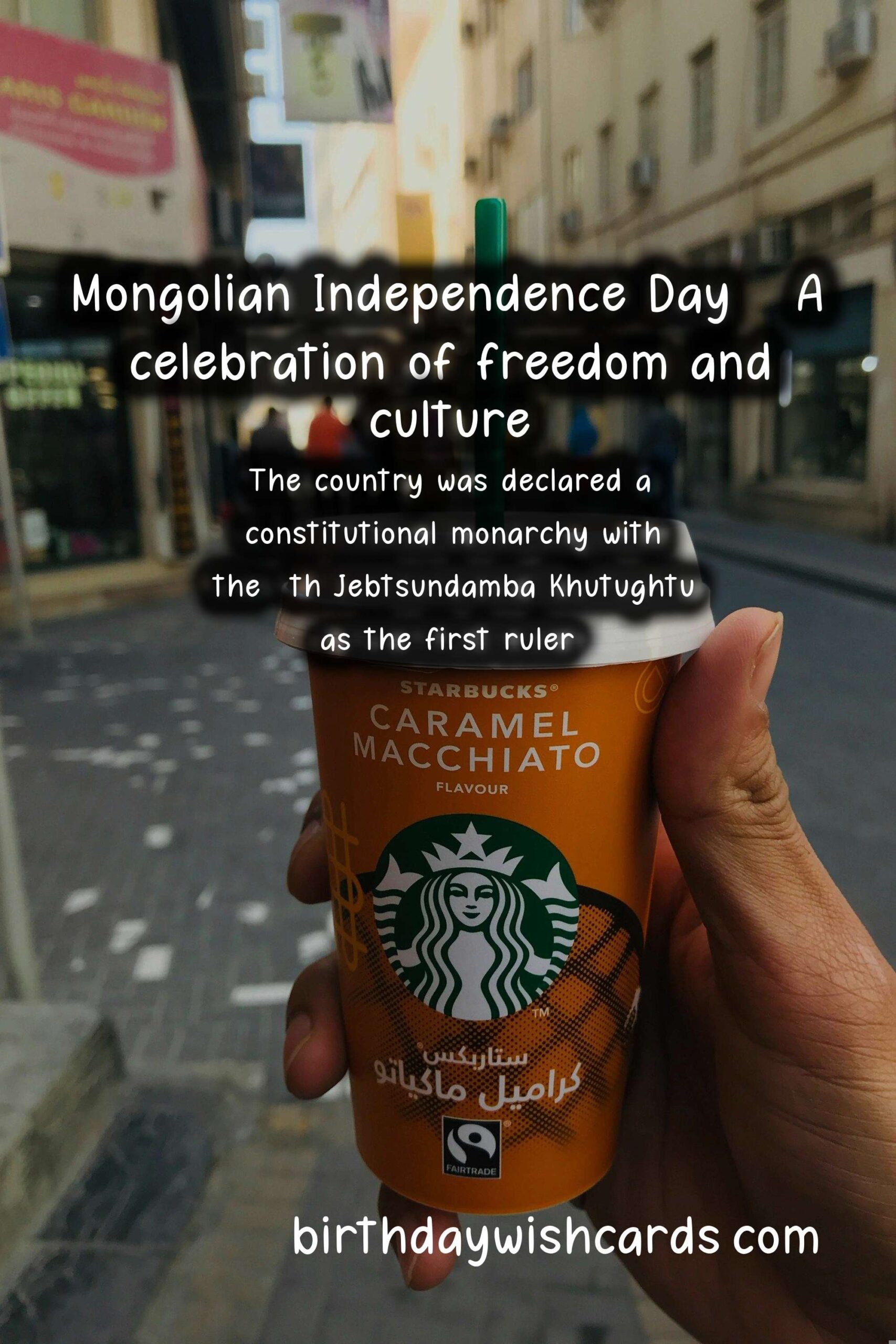

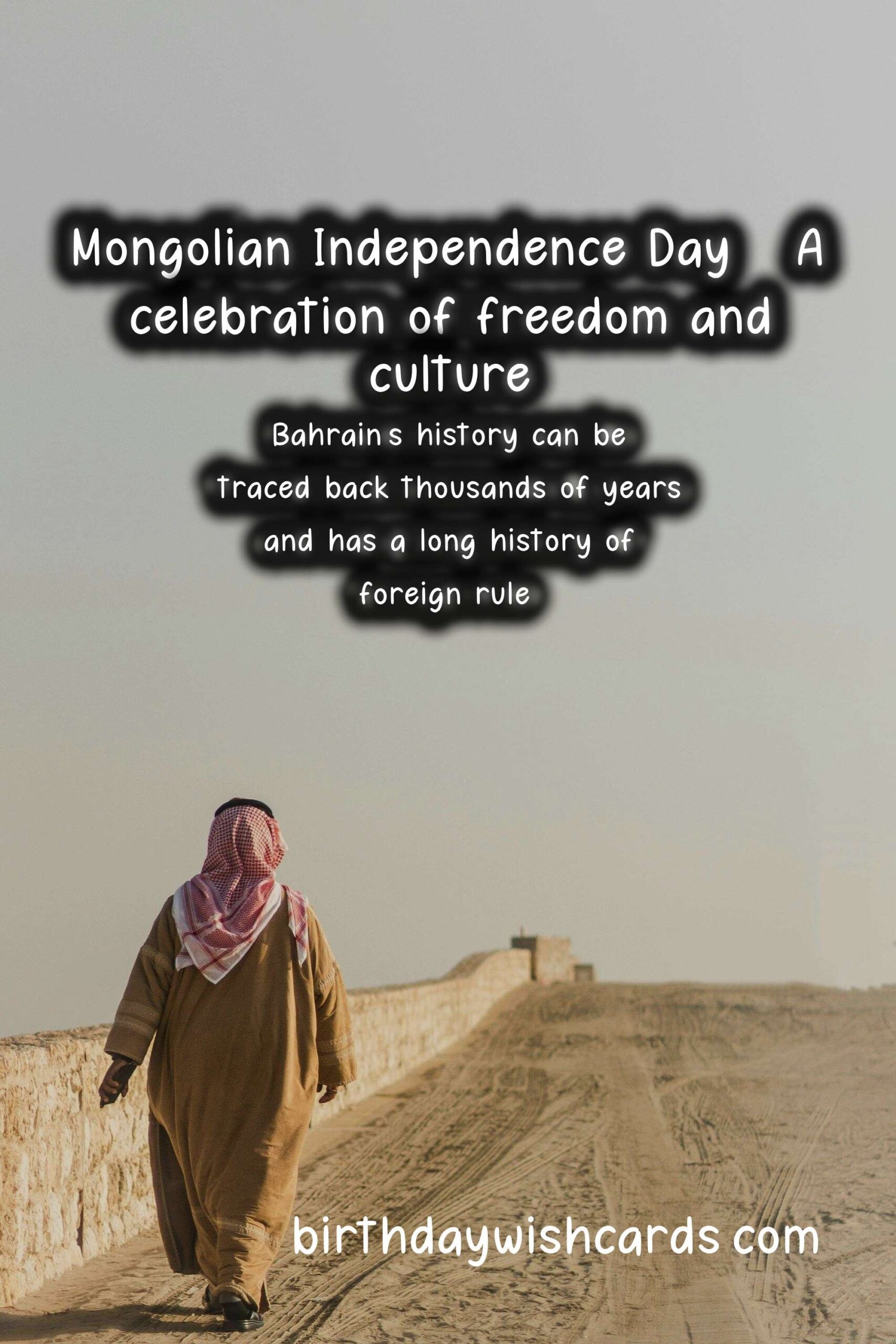
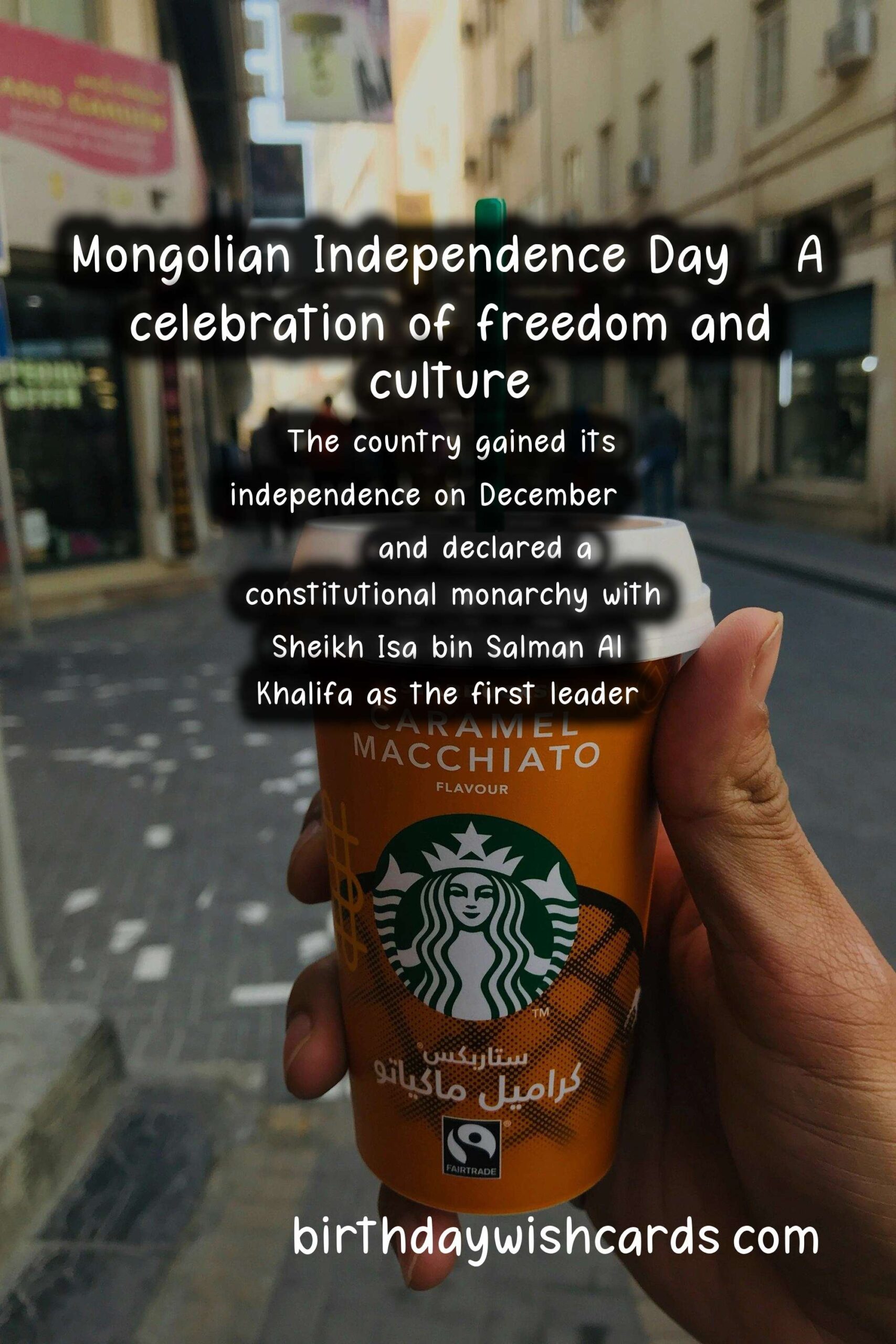
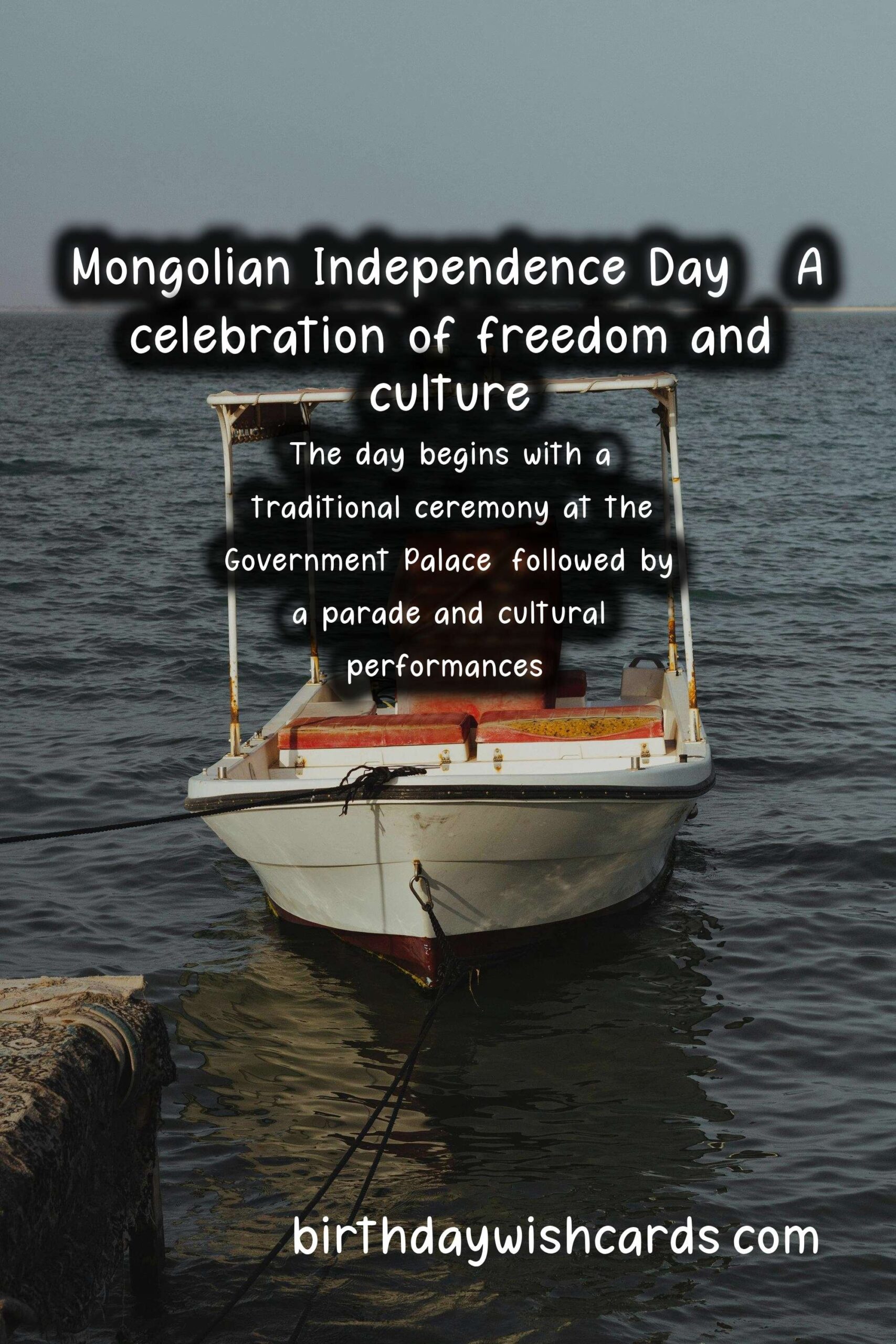
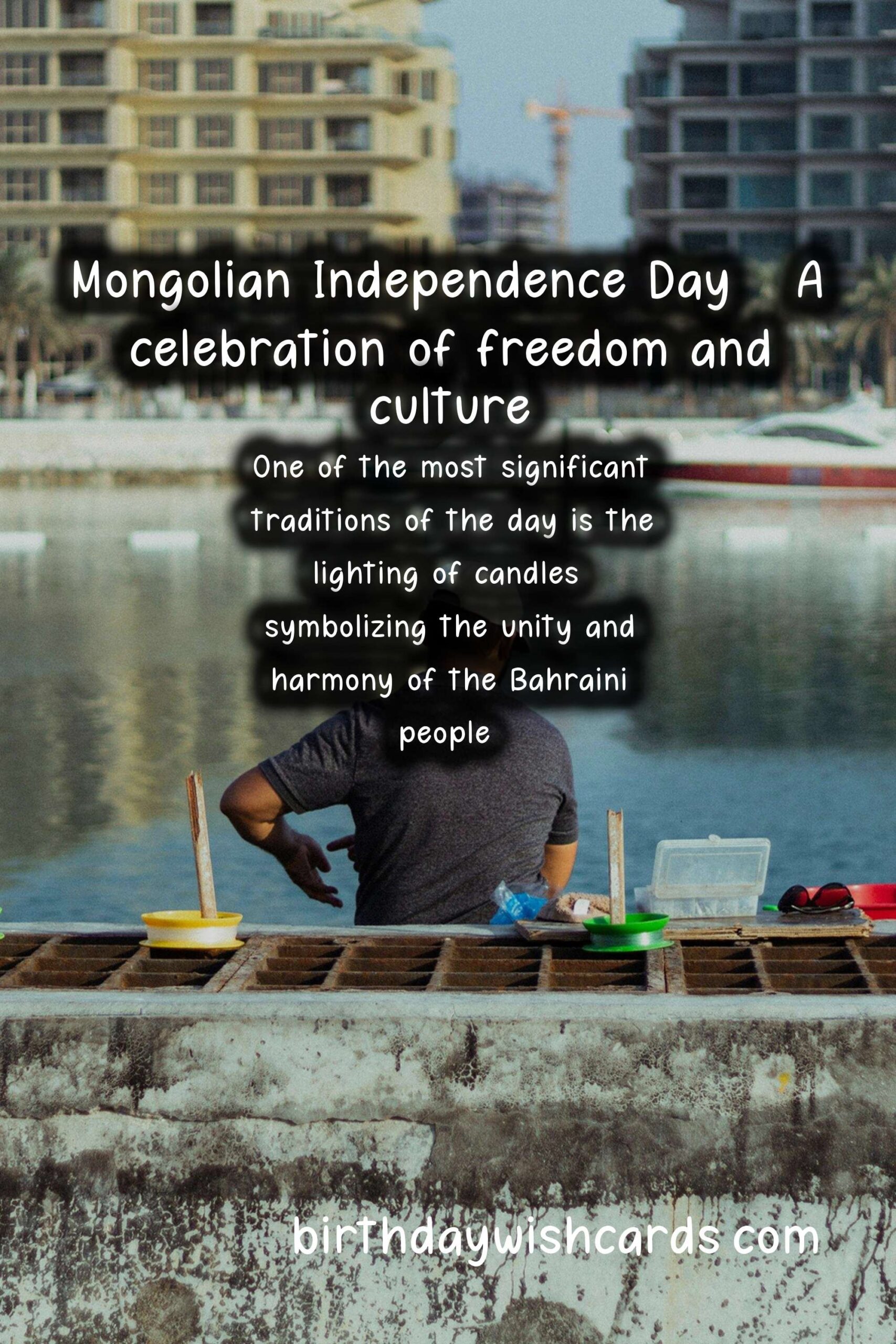
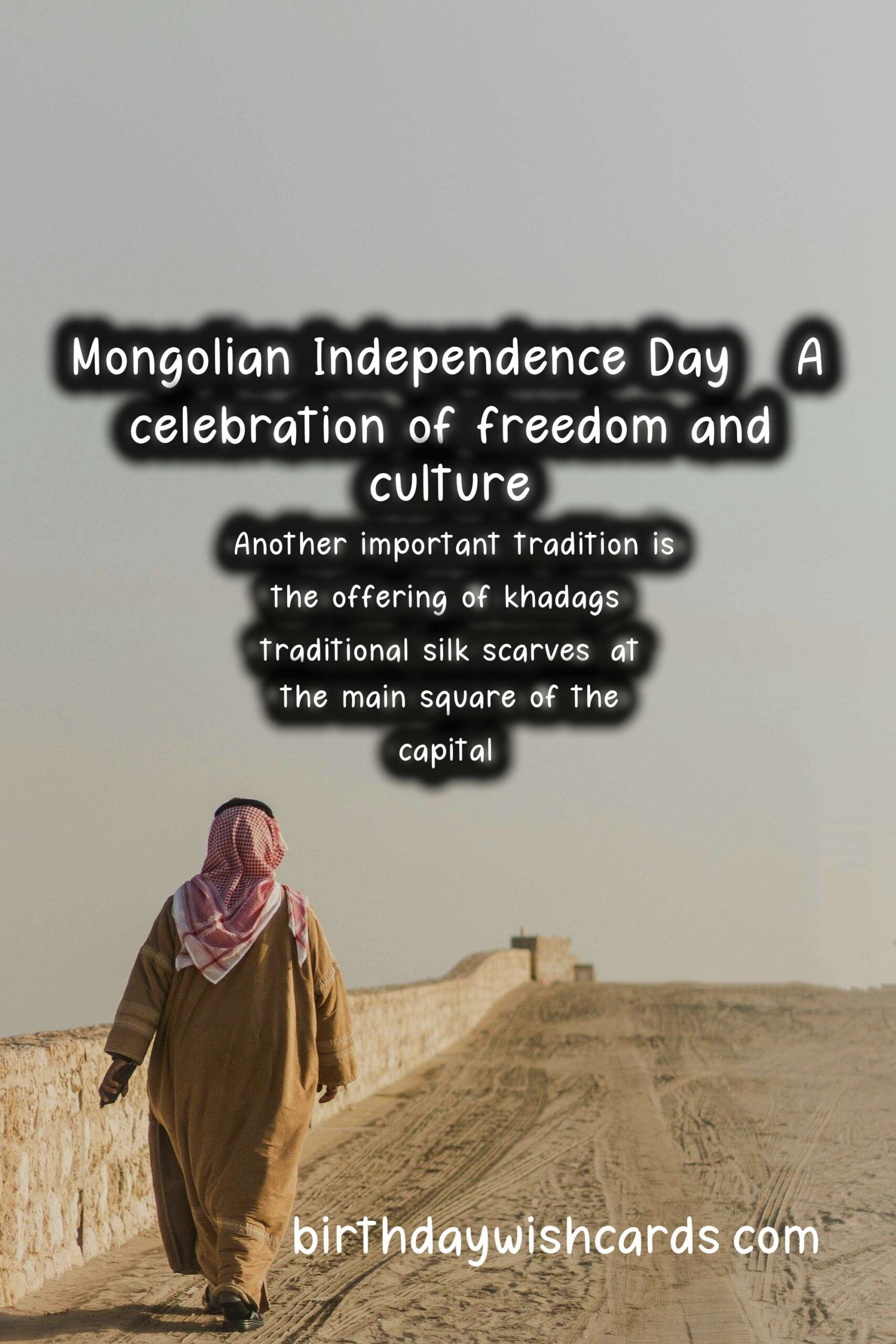
#Mongolia #IndependenceDay #Bahrain #NationalDay #Unity #Culture

